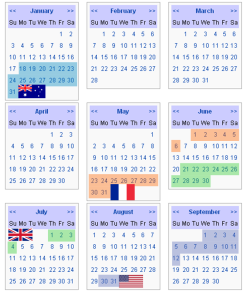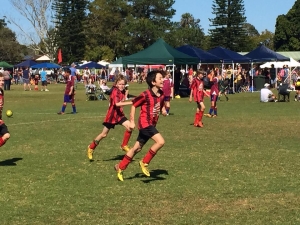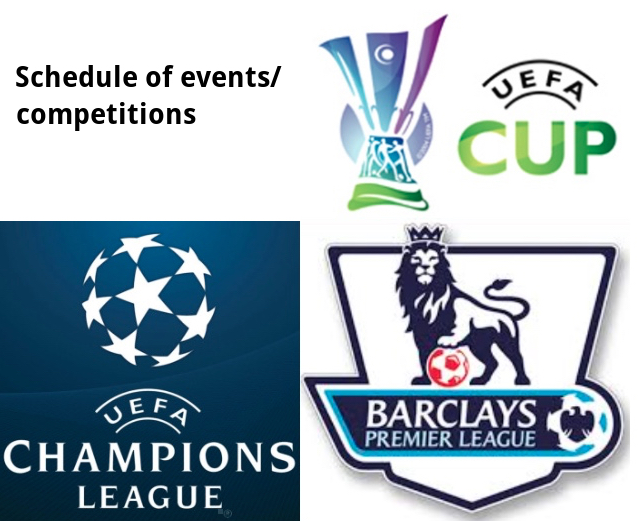When planning training programs an initial consideration will include the relevant schedule of events/competitions. In the creation of a training calendar or schedule, the first items that are included are usually when major events and competitions are held. This is because these are the times the athlete need to peak in their performance. Careful planning of training leading up to, during and after events/competitions is vital for an athlete to perform their best when it counts. It is no good having an athlete peak during the off or pre-seasons. Athlete’s need to be performing their best during competition and at major events.
The schedule of events/competitions is used to guide the creation of a year or more long training program. The schedule of events/competitions will vary considerably between sports. Many sports, such as football, rugby, netball and cricket, have seasons that go for 6+ months with weekly competitions with finals at the end of the season.
 Other sports, such as tennis, golf, and athletics, have a more varied season with competitions spread throughout the year. It is therefore, important that these are selected and schedules into the calendar before the training is planned.
Other sports, such as tennis, golf, and athletics, have a more varied season with competitions spread throughout the year. It is therefore, important that these are selected and schedules into the calendar before the training is planned.
Furthermore, a single athlete may have a larger number of scheduled events/competitions than others. For example, a rugby league player in the NRL will have weekly competitions, but then may also play in major events such as the State of Origin, and international competitions, as well as playing in the rugby 9’s competition during pre-NRL season. In addition to this, the schedule should note the location of events, as many major events/competitions occur in different locations, both within a country and around the world.
Elite and recreational/amateur athletes different schedule of events/competitions
 Keeping a good schedule of events/competitions becomes more complex for elite athletes compared to recreational/amateur participants. Elite athletes have a larger array of events/competitions that they can compete in, including club, representative, state and international levels of competition. This means that the schedule of events/competitions is more vital for an elite athlete than an amateur or recreational athlete. Many recreational/amateur athletes do not make schedules of competition, they simply know when they care competing and turn up. They may not create any form of schedule or detailed training program around the schedule.
Keeping a good schedule of events/competitions becomes more complex for elite athletes compared to recreational/amateur participants. Elite athletes have a larger array of events/competitions that they can compete in, including club, representative, state and international levels of competition. This means that the schedule of events/competitions is more vital for an elite athlete than an amateur or recreational athlete. Many recreational/amateur athletes do not make schedules of competition, they simply know when they care competing and turn up. They may not create any form of schedule or detailed training program around the schedule.
An example of this can be seen when comparing elite football players with recreational/amateur players. An elite football player would be playing in a national competition. We will use Australia as our base for this athlete, who plays in the A-League. This athlete may also have to compete in the Asian champions league and play for Australia in multiple international games, both friendlies and competitive matches, such as the Asian Cup or World Cup Qualifiers. These competitions all overlap with each other and form a complex matrix of events/competitions. Therefore, the need for a schedule is high.
Comparatively, the recreational/amateur player, registers for his local club with his mates, may not show up to training as it is not compulsory and only has to worry about the weekly weekend game. At the end of the season there might be a finals competition if the team qualifies.
Therefore, it is clear that a schedule of events/competitions is more important and more complex for the elite compared to the recreational/amateur player.

